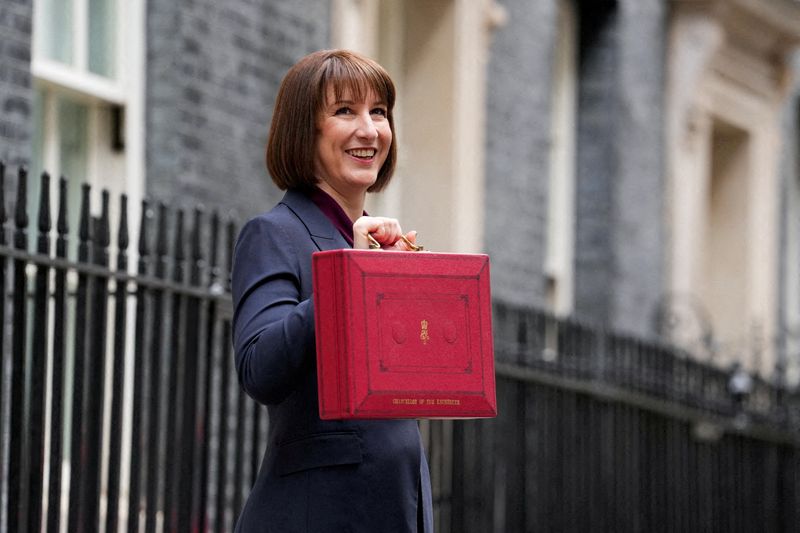By Andy Bruce
(Reuters) – Demand for workers in Britain collapsed last month after the new Labour government’s first budget, a survey published on Monday showed, adding to other signs of the impact of the tax increases on employers.
The Recruitment and Employment Confederation trade body and accountants KPMG said their index of demand for staff slid to 43.9, the lowest reading since August 2020, from October’s 46.1.
Only the COVID-19 pandemic, the global financial crisis, and the immediate aftermath of the Sept. 11 attacks on the United States resulted in worse readings.
Permanent staff placements fell in November at the fastest rate since August 2023, although the pace of decline for temporary workers eased slightly from October, REC said.
“It should be a surprise to no-one that firms took the time to re-assess their hiring needs in November after a tough budget for employers,” REC Chief Executive Neil Carberry said.
“The real question now is whether businesses will return to the market as they go into next year with greater certainty about the path ahead.”
Last week REC issued an “urgent warning” over the government’s separate Employment Rights Bill which aims to reform the labour market and raise living standards, describing it as “undercooked”.
Finance minister Rachel Reeves, who announced her budget on Oct. 30, will hope that Monday’s survey represents a one-off dip rather than the start of a longer downturn in the labour market.
The REC survey is a diffusion index which can be prone to sharp but short moves around big political and financial events.
But employers have said the tax rises on businesses will have a deeper impact.
Last week, the Confederation of British Industry cut its estimate for economic growth next year due to the higher social security contributions, although other forecasters such as the OECD have said other measures in the budget will raise growth.
A Bank of England survey showed 54% of businesses said they would respond to their higher costs from the budget by reducing employment, while 38% expected lower wages.
Separately on Monday, a survey from research company Incomes Data Research showed the median pay deal offered by private sector employers slipped to 3.9% in the three months to October from 4.0% previously.
The BoE is watching for signs of diminishing inflation pressure in the labour market.
Reeves has described the budget as a one-off to fix the public finances and pay for improved public services and has promised businesses stable and predictable tax policy to help them plan and invest.
Jon Holt, group chief executive of KPMG UK, said expected interest rate cuts in 2025 and the government’s investment plans offered reasons for optimism.
“This should give businesses greater confidence which may help stabilise the labour market,” Holt said.



